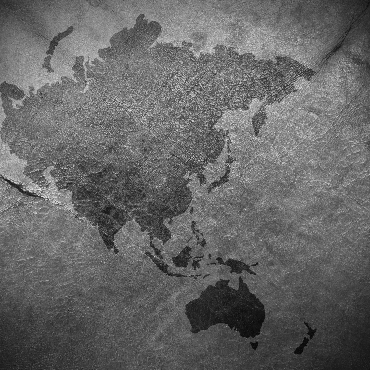LIECHTENSTEIN THWARTS CHINA'S EFFORTS TO COMPETE WITH STARLINK
Liechtenstein has thwarted China's effort to obtain the broadband satellite frequencies granted to the principality by the International Telecommunication Union in 2014. Beijing wanted Liechtenstein's frequencies because they offer use the Ka band of the frequency spectrum. China's campaign, which included more than 160 lawsuits, amounts to "lawfare," or warfare though litigation. "Chinese investors thought that because we are a small authority, they could railroad us with a relentless slurry of lawsuits," said a Liechtenstein regulator. The German government explained: "The [Chinese] satellite constellation will be used for military purposes to the detriment of the defense capability of [Germany] and its allies." China perceives Starlink as a national security threat, and is building its own rival constellation of 13,000 low-Earth-orbit satellites. (Washington Post, September 27, 2023)
INDONESIA LAUNCHES CHINA-BACKED HIGH-SPEED RAILWAY
Indonesian President Joko Widodo has inaugurated the $7.3 billion China-backed "Whoosh" high-speed railway connecting Jakarta with Bandung. The 88-mile rail line, one of the president's flagship infrastructure projects and part of the Belt and Road Initiative, has faced an array of problems, including land procurement issues, pandemic-related delays and ballooning costs. Built by a consortium of Indonesian and Chinese companies, the railway, on which trains will reach speeds of 350 km per hour (217 mph), has been offering free trial rides since the second week of September. Ticket prices will be implemented in mid-October. (Reuters, October 2, 2023)
CHINA AND BRAZIL START TRADING IN NATIONAL CURRENCIES
For the first time, China and Brazil conducted a trade using only their own currencies, without U.S. dollars. The product, tree pulp, was shipped from Brazil's port of Santos to Qingdao, Shandong and the bill was settled in yuan and directly converted into Brazilian real on September 28th. When visiting Beijing in April, Brazilian President Ignacio "Lula" DeSilva signed a MoU with Xi Jinping to promote bilateral trade in local currencies. "Why can't we base our trade on our own currency? Who decided it had to be the U.S. dollar? We need a currency that puts countries in a more comfortable situation because today, a country needs to chase after the dollar to export," Lula said. Chinese importers are asking other major Brazilian exporters – such as Suzano, which is also in the cellulose industry, and the oil company Petrobras – to also start trading in yuan and reais. (Merco Press, October 6, 2023)
BELGIUM SUSPECTS ALIBABA OF ESPIONAGE
Alibaba is the latest Chinese firm suspected of engaging in espionage, according to Belgium's security service, VSSE. VSSE is monitoring the company's logistics division, Cainiao, at a logistics hub in the Liège cargo airport. "[We] detect and fight against possible spying and/or interference activities carried out by Chinese entities, including Alibaba," VSSE said in a statement. Alibaba has denied the allegations, which it said are "based on prior conjecture." (Webpro News, October 6, 2023)
[EDITOR'S NOTE: Chinese companies are required to support Beijing when called upon to facilitate espionage. Such activities have led several countries to label Huawei, ZTE, and others as threats to national security and apply stiff sanctions.]
DOJ ANNOUNCES INDICTMENTS AGAINST CHINESE FENTANYL SUPPLIERS
The U.S. Justice Department has charged five Chinese companies and eight employees with the production, distribution and sale of fentanyl precursor chemicals. Meanwhile, the U.S. Department of the Treasury's Office of Foreign Assets Control simultaneously designated 28 individuals and entities involved with the international proliferation of illicit drugs. "We know that the global fentanyl supply chain, which ends with the deaths of Americans, often starts with chemical companies in China," said Attorney General Merrick Garland. "Fentanyl is the deadliest drug threat our nation has ever faced. These eight cases are the result of DEA's efforts to attack the fentanyl supply chain where it starts — in China," said DEA Administrator Anne Milgram. The defendants advertised their ability to deliver the fentanyl precursors to the U.S. using fake shipping labels and special delivery procedures. (U.S. Department of Justice, October 3, 2023)
Want these sent to your inbox?
Subscribe




